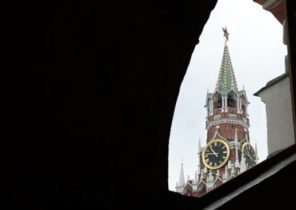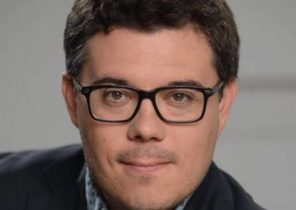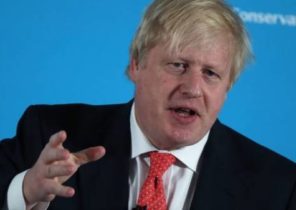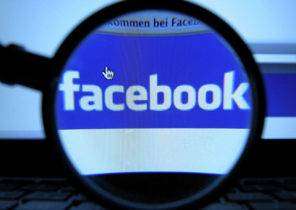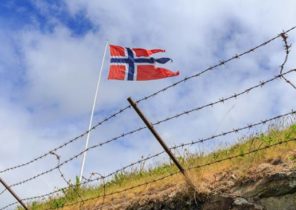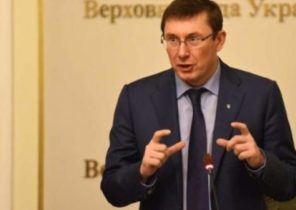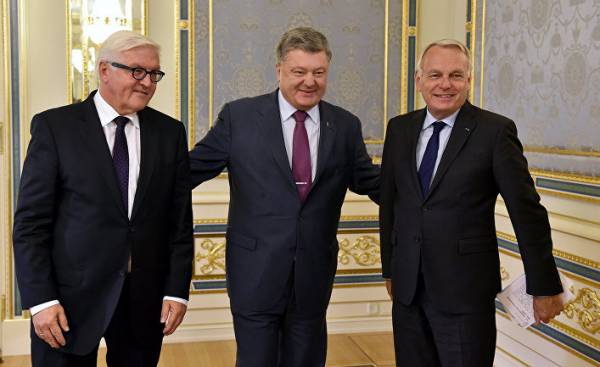
Edward Lucas is senior Vice President of the Center for European policy analysis and editor of the authoritative British magazine the Economist, the once — head of its Moscow Bureau, correspondent in Central and Eastern Europe, the author of several books about the confrontation between Russia and the West. With a well-known journalist of “Apostrophe” has talked about the results of early election in the UK, expectations from the German-French Duo of leaders in the person of Angela Merkel and Emmanuel Macron, the reforms in Ukraine, the protests in Russia and the likely displacement of Vladimir Putin.
Vladislav Kudrik: After elections in the UK what to expect of the tories (the Conservative party — “Apostrophe”) in the new Parliament?
Edward Lucas: I Think, first of all, they are licking their wounds — it was a crushing blow. Now they need to repair the split within the party, to govern and to confront the labour party, which is on the rise, and spend Brakcet. All these are difficult tasks, and, in any case, the responsibility falls strictly on Theresa may. And she has already shown that it is not very suitable to solve these difficult problems.
— Is it likely that Theresa may will remain as Prime Minister until the next election?
Is very unlikely actually. Tori trusted her, believed in her ability to manage a team, her political opinions, her ability to connect with voters. The three things that really matter. So I think now they want to stabilize the government. I hope that the rise of the labour party gradually come to naught, because people don’t like [its leader Jeremy] Corbyn. And then they will look back in the party, looking for a successor [Theresa may] that can be selected, it seems to me that the result is not a contested election, and what kind of “coronation”. But at the moment it is very difficult to see who it could be. [Minister for foreign Affairs of great Britain] Boris Johnson is also not trusted. None of the other politicians in the party are not known enough.
— Is it possible to now “hard Brakcet”?
— I think that the ideologists of the “hard Breccia” will now have to defend themselves, but they are not lost completely. In my opinion, great danger now is not “hard Brakcet” and messy. Negotiations are not held on time. And if they go bad, will be tempted to blame on foreigners, to say that we are in a position in which it is impossible to reach agreement because of insufficient time.
I still think it’s real, but unlikely. The markets will react so bad that you should be careful of Grand collapse, recession and falling stock exchange. Therefore, I think it is most likely that we will agree on the “soft Breccia”, but most likely on unfavorable terms: stop paying much, won’t have much impact on decisions and lose access to the benefits that the EU has; but stay in the [European] common market and the Customs Union of the EU.
— How did the attitude of the population to Bracito from the time of the referendum on withdrawal of Britain from the EU?
— I think the key thing to remember is that the population to Brexia never had much to do. It means a lot to outside observers, to understand the place of Britain in Europe is much better than many Brits. I think about 10% of the population desperately wanted to stay, about 15% — would dearly love to go, but for the rest 75% is not the primary problem, she’s not even among the top ten priorities. I think that it was a referendum on a series of questions: do you feel that your opinion is taken into account, do you like run the country… This led to the answer “no”, for obvious reasons. But it was not a detailed analysis. And by this time, to my surprise, the main core of supporters of EU membership were consolidated. 48% [who voted against Brexia] but about 15-20% want Britain to stay. But there is also a very large group, about 28% of the 48% who now say, “We voted to secede. Well, let’s go! Stop fooling around! Just get the best deal!”
— The Emmanuel Macron after the parliamentary elections will be almost absolute power in France. This will enhance the European Union, including the issues of sanctions and Russian aggression in Ukraine?
In my opinion, the rise of the Macron is one of the most significant things that happened in Europe for ten years, it is really important. This shows that you can win with the program Rakuten international liberal centrism that the last time we saw when he beat Tony Blair [in Britain]. I think many direct reform would benefit France rather quickly. There is a program of systematic microglobulinuria: to improve growth, create jobs, improve the investment and business climate. So I’m very optimistic about the Makron. But I’m concerned that destroying all the “old” party, he made “national front” the only opposition. While this might not seem like it but if you imagine what will happen after the Rules — if the alternative opposition will be anti-systemic right-wing or left-wing anti-system, they will eventually win. So in the long term it worries me, in the short run, however, I am quite optimistic.
In the context of the Minsk agreements, which were stalled, do you expect something new?
— Definitely. I think macron becomes extremely tough against Russia, for the reason that he saw Russia attacked the French political system. If Angela Merkel surely will win the September elections in Germany, the Union of Merkel and Macron will be very good for Ukraine and extremely tough against Russia. Not sure about the details of the agreements Minsk, but I am sure that sanctions will undoubtedly continue. In Europe the persons who make decisions, more and more serious about confronting the threats in security on the part of Russia in the “hybrid war”: attacks information, financing, murders… It is their serious concern. And I think that this Franco-German leadership in European politics will be very important.
— What should Russia expect from the new Franco-German Duo in the issues of the Minsk agreements and of Russian influence in the European institutions?
— I think Russia will be more difficult. I believe that the focus on European defense will continue, and on Russia as a priority threat to her. Russia will be much more difficult to follow the tactics of “divide and conquer”. There will be more steps to strengthen energy security, to combat the information war. I think the trend in Europe to choose the right.
Putin has increasing difficulties related to the fact that the economy is not modernizarea, oil prices fell. I think, Europe feel unable to keep Putin to concentrate on something else. But it is unlikely we will see any drastic changes.
Petro Poroshenko in his position for three years. Do you believe in real transformation of Ukraine with the current regime?
— I think the main enemy of Ukraine — impatience. Will be a long process and many disappointments. The key is to remember that in comparison with 2014 you in a much better position: you have overcome the triple crisis in terms of geopolitics and security, stopped the Russians, and now, I think, a project like “new Russia” is a no-brainer. Russia lost their war from the point of view of aggression in Ukraine. You have overcome financial and economic crisis: the economy is growing, stabiliziruemost, there is no threat of default. You also have overcome the crisis of political competition, no decomposition of the institutions, though Yanukovych has left them behind in a terrible state. The main thing now is to improve the administrative culture, the rule of law, transparency, to fight corruption. There are very few examples where the transformation of the state occurred quickly. So I am patient and optimistic, and I think that in ten years Ukraine will be in much better shape than it is now. Just as she is now in much better shape than three years ago.
— What are the new anti-corruption protests in Russia? They change something for the Kremlin?
— Yes, probably. We have seen this “movie” at the Swamp, and we know that young people, middle-class Moscow and the big cities are fed up. And we know that the authorities have no answer, except the nationalist pathos and repression. But we also know that these methods work quite well. The Russians outside these categories still love Putin and don’t see alternative to him. Even among the opposition, not so many people will say that would like to see the President of the Bulk. To have political competition, you need not only the opposition and the political mechanisms through which it could come to power, but also the credibility of the opposition. You need someone who people can say, “Yes, this man can run the country”. I think until such a person have no opposition.
Many Russians are very afraid of instability. Even incompetent and corrupt regimes, as in the days of Brezhnev and Putin, better for them than the future is full of unpredictability and chaos, when they will control the people they don’t know.
— That Putin and his entourage will be taken to reduce the protest of tension? Can Russia start a new war to distract the people and to consolidate them before the presidential election?
— Clearly there is such a risk! If they believe that the opposition can succeed, they want to divert attention due to some new game or select a new source of pride. For them it would be a logical step. Something may be in Belarus, the Arctic, Central Asia — there are different versions of provocations. And many of them may work for you. We have in the West is definitely not the answer, what to do if the Russians will slip Lukashenko and put in a new Pro-Russian authorities in Minsk. To start a new cold war, only to protect Mr. Lukashenko, who we don’t like even more than Putin? So Putin has a wide field of action tactically. But strategically, I don’t think it will work because the underlying problems is extremely high.
Another possibility is that Putin will decide that they need someone else. They can tell about the risk that the opposition will find a competitive candidate. And then we can see the focus Rogozin, Sergei Ivanov, Sergei Shoigu (Deputy Prime Minister Dmitry Rogozin, the former head of Putin’s administration Sergei Ivanov and Minister of defence of Russia Sergey Shoigu — “Apostrophe”), or even some of the many prominent Russian politicians. Then Putin will suddenly disappear. We, in fact, do not understand the Kremlin’s policy. But if Putin would be disadvantageous to the regime, the regime will find ways to deal with it.
Putin has two main roles in Russia. The first is to be an arbiter in conflicts between clans, and it is very well possible. It keeps balance between oil and gas, security forces and security forces, regions and the centre. And the second big role is to be the frontman, the man who is shown on TV, making fun of people and gives them pleasure, while this regime is bad for Russia and the Russians stealing tens of millions of dollars a year. As soon as any of the role Putin will start to run bad, it can go fairly quickly — they [the environment] will find someone else.
— The situation is reminiscent of the Brezhnev era?
— History never repeats, but sometimes it may rhyme, as once said by mark TWAIN. I think there are some Parallels with the Brezhnev era, but they are not very strong, because Putin is still very fresh, unlike Brezhnev at the time. The main weakness of Brezhnev was that he was in that state of physical decline, and laughed. But the story of Brezhnev shows that the decline can last for a very long time. Just like people, aging, becoming more timid and modes, aging, becoming more fearful and doing less. I think this stagnation has arrived.
Perhaps there is also one more parallel between Putin and Gorbachev. Gorbachev did not understand nationality. And Russia also will captivate the nation against their will: Tatarstan, Bashkiria, the North Caucasus and especially Chechnya. There is the potential for centrifugal forces which will tear Russia to pieces, just like it happened with the Soviet Union. Putin does not understand is that Russia is still an Empire, does not understand the anti-imperialist sentiments within its borders.
— What should Ukraine expect from Russia in the Donbass after the presidential elections next year?
— If I actually knew the answer to this question, I would have headed MI6. Assume that Russia will come to the point when she wants to “turn off” the conflict. Could be some kind of a deal when they say, “We stop fighting and you accept it.” Or they’ll leave [c Donbass] and say: “We leave the Crimea, and you take back those two areas”. I think that Russia is extremely expensive [to include the occupied territory of Donbass], and particularly anything it does not bring. Russia has not succeeded to destabilize Ukraine enough to make it worth it. Assume that within a couple years the Russians offered Ukraine a deal. And then, of course, the question will be, will you accept it.
What’s going to happen to Russia returned to the Crimea? The end of the regime, a deal with the West, or something else?
— I think it’s a very distant prospect. I can imagine that the so-called DNR and LC will return to the Ukraine for ten years. I think the return of the Crimea will take significantly more time. And this will only happen when Ukraine will be a very successful country with high living standards and strong democratic institutions, on the way to integration or even membership in the EU. Ukraine in 2037 is a very successful country, and the Crimea — still surviving the post-Soviet region, Russia subsidized. That might change, but I think the process will be long.
The only thing that can change is the shock to the regime in Russia. If suddenly, by some miracle, Garry Kasparov will become President of Russia, Crimea will return to you the next day. But I think the probability is about 5% or less.
— But if we’re talking about crimes committed by Russians in the Donbas and in the Crimea, is there a chance that they will be punished for their actions, including the authorities in the Kremlin?
— Yes, we need to continue to work on this. Perhaps when Russia offered a deal, one of its points is Amnesty, and therefore Ukraine will be difficult to make a decision, given what happened. But I firmly believe in the rule of law and prosecution for war crimes. The main thing — to gather evidence and at least to make it clear that all those responsible will lose the opportunity to ever get into a civilized country, because they will be caught, and so will be forced to enjoy their vacations in North Ossetia. The rule of law is a very powerful weapon. Ukraine must keep up the pressure.
— How much time you may need to rebuild the economy under the control of the Donbass, its modernization? How to invest rationally in the region now, and what the industry can be promising?
— It can be extremely difficult. There is a combination of not only a very difficult situation in the sphere of security and damaged infrastructure, but also the fact that heavy industry in the region was outdated even before the war, and now even more. If there is an agreement and peace, the situation stabiliziruemost, you can expect an influx of foreign money in large volumes with the purpose of restoration of the Donbass. This will improve the situation, runs the infrastructure, cover the debts. But don’t change anything fundamentally, because these are the areas of heavy industry in the world in which the economy is moving in a completely different direction. If you start to use 3D printing to manufacture parts for cars, not heavy metals, are great prospects. Given the speed with which changes in the economy, I would not be optimistic about the prospects of Donbass.
— Recently, the Poland was the first to arrive for the us tanker with liquefied natural gas. Can you talk about the beginning of a real transformation of the European gas market? What will happen to Russian gas pipelines and supply in the long run?
Pipeline gas is always cheaper than liquefied natural gas. If you filled the pipe, you can pass little money. The marginal cost of sending a tanker with LNG is quite high. On the other hand, LNG plays a very important role in the negotiations: if you are able to obtain LNG, you are not subject to monopoly pressures associated with the import of pipeline gas.
So I only, but I think that LNG supplies to Europe will be limited. More importantly, the construction of a gas corridor “North-South” gas interconnectors, the improvement of gas storage and creating the right market where you can sell gas from one country to another, ending with the ultimate “destinations”. Why don’t we start to treat gas, as we call soap or toothpaste?! Then the Russian political pressure would be much weaker. But I think that this problem is not completely solved and we have some difficulties compared to the situation as of 2004 there is a very inspiring progress.
— And a couple of final questions about the United States. You personally after five months of Donald trump as President any more or less fears the fact that he can uchudit?
— I think in General things are improving. It is very difficult and frustrating for allies to see that the country is run by a man who says and does such strange, unpleasant things. During the race it looked like, what he was going to renounce NATO — he did not. It seemed that he was going to start a global trade war — he did not started. It seemed that he will tear all of the obligations of the United States in the field of human rights — he did not. So the American Constitution is working very well. Congress stopped many of his stupid decrees, some quite rightly blocked by the court. Members of his team [national security adviser Herbert] McMaster [Pentagon chief James] Mattis has done a good robot for maintaining stability of security policy. I think [U.S. Secretary of state Rex] Tillerson has also done a reasonable job.
But it’s not great, I’m not saying pleased. Think ahead 3.5 years — assuming that trump last 3.5 years — and it will be a rather weak presidency. If you want American leadership, in most cases you will not see it. But the basic control, the basic U.S. involvement in world Affairs will remain.
— What scares you most in the context of Mr. trump?
— Probably, it is unpredictable. The fact that he could seriously be wrong in a crisis situation. To destroy NATO with one tweet. If the Russian invasion of the Baltic States, and he is the tweet that it is “not our problem”, it will be the end of the [NATO]. I care, but also any action. I worried about North Korea, because at the moment it is a much more serious problem than Russia. Predecessors left Trump a difficult situation. There are bad options, and trump the bad in decision-making, and this is a very bad combination.
So much information to worry about. But returning to Ukraine, if in January 2014, someone said that by June 2017, you will inflict military defeat on the Russians get visa-free travel to Europe will have a growing economy and a vibrant democratic life, with institutions that are mainly engaged in what has, people would say that it is very good, and asked: “How do we achieve this?”

